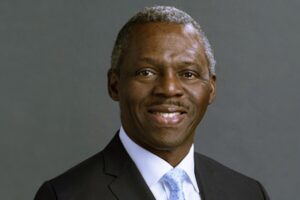Ipperwash’s unsung hero

By Maurice Switzer
Hugh Fraser is an unsung hero, an accolade he never sought but earned for ensuring that justice would be served in the aftermath of the 1995 Ipperwash tragedy.
After Anthony “Dudley” George was shot and killed by Ontario Provincial Police (OPP) sniper Kenneth “Tex” Deane in the darkness of that Sept. 6 night, most of the subsequent public attention focused on grieving members of the George family and then Premier Mike Harris, whose memorable marching orders to his Cabinet had been to “get the f*****g Indians out of the park!”
In 2007, Commissioner Sidney Linden issued the Report of the Ipperwash Inquiry, which found that Harris’ actions contributed to an environment that made it more likely that such a tragedy would occur.
The report’s 100 recommendations stressed the need for police agencies to overhaul their ham-handed approach to dealing with Indigenous protests, and for greater public education about the legitimacy of treaty rights.
But in some ways, the Inquiry was an anti-climax, a theatre that provided Chippewas of Kettle and Stoney Point community members the first genuine opportunity to have their voices heard and to vent against the militaristic treatment that had resulted in the death of one of their own. On the other side of the stage were senior police officers and politicians who either displayed glaring memory losses about the events leading up to Dudley George’s killing, or grimly stuck to the (Conservative) party line about the presumed danger posed by a couple of dozen ragtag unarmed protesters.
The person who would have been the Inquiry’s star witness – Sergeant Deane – died in a car crash in eastern Ontario just weeks before he was to give evidence about what prompted him to fire three shots from his semi-automatic rifle, one of whose hollow-point bullets broke Dudley George’s collar bone, pierced his left lung and broke two ribs.
Any attempt by Deane to rationalize his trigger-happy conduct would have been offset by the fact that, nine years earlier, Judge Hugh Fraser had, in effect, called him and two fellow OPP officers liars when they claimed to have seen the Chippewa protesters brandishing weapons. One officer was brave enough to contradict their version of events.
In convicting Deane of criminal negligence causing death, Fraser said the police officers who testified had “concoct[ed] a story . . . in an ill-fated attempt to disguise the fact that an unarmed man had been shot.”
“I find that you weren’t honest in the statements you gave to the police, you weren’t honest in statements you gave to the SIU (the province’s Special Investigations Unit, which investigates police use of deadly force), and you weren’t honest in statements you made to this court,” he admonished Deane.
It was remarkable for a judge to make such a damning court ruling in a case that jeopardized the credibility of an entire policing agency, not to mention a provincial premier, and that was the subject of media coverage that one expert witness would describe as “the most racist” he had ever witnessed.
Nothing that could have been said at the Ipperwash Inquiry nine years later would have been more incriminating of Ontario police officers or politicians.
The Hon. Justice (Ret.) Hugh Fraser has just stepped down from his role as chair of a transitional board of directors of Hockey Canada that was created in the wake of the ongoing sexual assault scandal involving members of Canada’s junior national team in 2018.
Born in Jamaica, Justice Fraser was appointed to the Order of Canada in 2021 after a lifetime of service to his adopted country, from his career as an Olympic sprinter to his 25 years on the bench for the Ontario Court of Justice. He also served on the Canadian Human Rights Tribunal and the Dubin Commission of Inquiry into sports doping.
He has two sons who played professional hockey. Mark played 219 National Hockey League games as a defenceman with New Jersey, Edmonton, and Toronto, and was hired by the Maple Leafs as their first Manager of Culture and Inclusion.
In a speech several days after his mother’s funeral, Justice Fraser was typically humble about his contributions.
“I’ve had so many incredible experiences in my life, athletically and professionally. But the important lesson I learned from my parents, and in particular from my mother who outlived my father by almost 30 years, is that while those accomplishments are meaningful and worth pursuing, they don’t bring you the peace that comes from knowing that God holds your future.”
Maurice Switzer is a citizen of the Mississaugas of Alderville First Nation. He serves as president of the North Bay Indigenous Friendship Centre.


